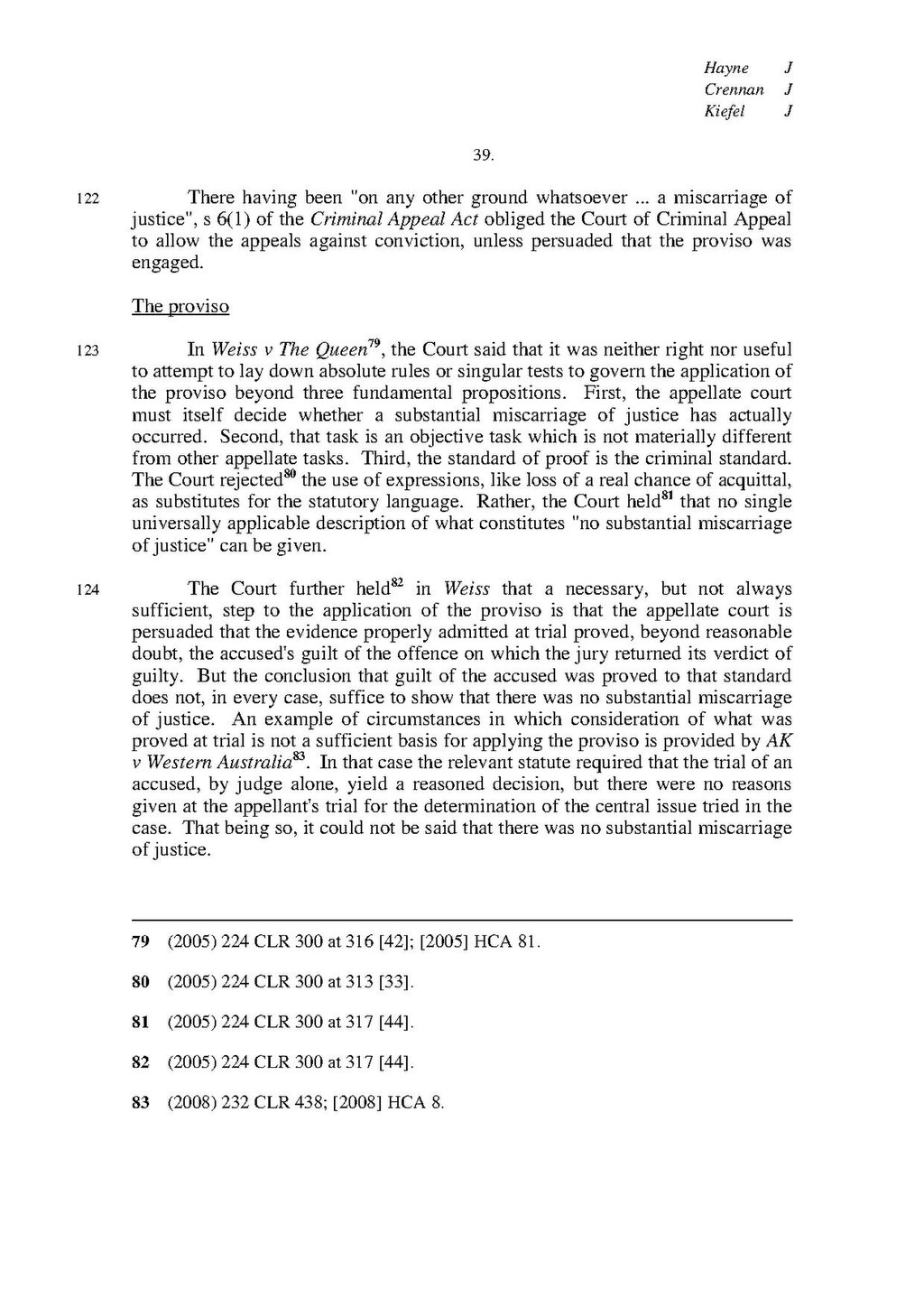Hayne J
Crennan J
Kiefel J
39.
There having been "on any other ground whatsoever … a miscarriage of justice", s 6(1) of the Criminal Appeal Act obliged the Court of Criminal Appeal to allow the appeals against conviction, unless persuaded that the proviso was engaged.
The proviso
In Weiss v The Queen[1], the Court said that it was neither right nor useful to attempt to lay down absolute rules or singular tests to govern the application of the proviso beyond three fundamental propositions. First, the appellate court must itself decide whether a substantial miscarriage of justice has actually occurred. Second, that task is an objective task which is not materially different from other appellate tasks. Third, the standard of proof is the criminal standard. The Court rejected[2] the use of expressions, like loss of a real chance of acquittal, as substitutes for the statutory language. Rather, the Court held[3] that no single universally applicable description of what constitutes "no substantial miscarriage of justice" can be given.
The Court further held[4] in Weiss that a necessary, but not always sufficient, step to the application of the proviso is that the appellate court is persuaded that the evidence properly admitted at trial proved, beyond reasonable doubt, the accused's guilt of the offence on which the jury returned its verdict of guilty. But the conclusion that guilt of the accused was proved to that standard does not, in every case, suffice to show that there was no substantial miscarriage of justice. An example of circumstances in which consideration of what was proved at trial is not a sufficient basis for applying the proviso is provided by AK v Western Australia[5]. In that case the relevant statute required that the trial of an accused, by judge alone, yield a reasoned decision, but there were no reasons given at the appellant's trial for the determination of the central issue tried in the case. That being so, it could not be said that there was no substantial miscarriage of justice.
